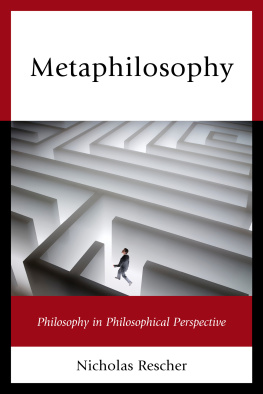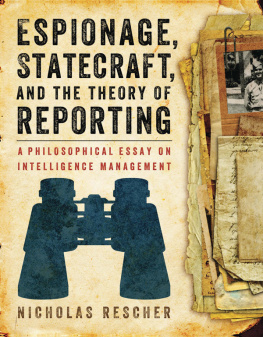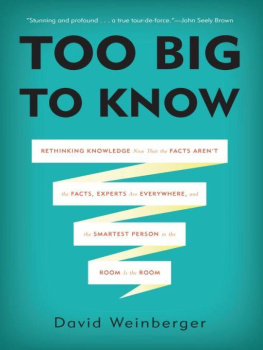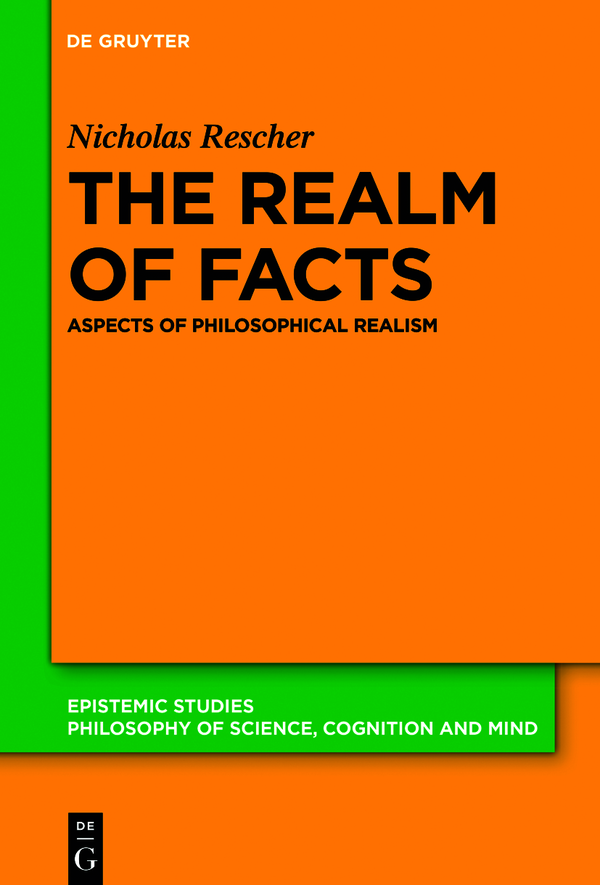Epistemic Studies
Philosophy of Science, Cognition and Mind
Edited by
Michael Esfeld
Katalin Balog
Vera Hoffmann-Kolss
Max Kistler
Beate Krickel
Anna Marmodoro
Alyssa Ney
Hans Rott
Wolfgang Spohn
Gottfried Vosgerau
Stephan Hartmann
Claus Beisbart
Albert Newen
Craig Callender
Tim Crane
Katja Crone
Ophelia Deroy
Mauro Dorato
Alison Fernandes
Jens Harbecke
Volume
ISBN 9783110669350
e-ISBN (PDF) 9783110670028
e-ISBN (EPUB) 9783110670110
Bibliographic information published by the Deutsche Nationalbibliothek
The Deutsche Nationalbibliothek lists this publication in the Deutsche Nationalbibliografie; detailed bibliographic data are available on the Internet at http://dnb.dnb.de.
2020 Walter de Gruyter GmbH, Berlin/Boston
Professor Jamie Morgan
in cordial friendship
Preface
Logicians study which facts follow from or contradict others. Epistemologists and cognitive theorists study how we arrive at knowledge or conjecture regarding the facts. But the basic issue of what facts are has largely fallen between the stools. It is on this issue, however, that the present book will center.
I am grateful to Estelle Burris for her help in preparing my MS for the publisher and to James Baron for his constructive proofreading of my imperfect manuscript.
Nicholas Rescher | Pittsburgh PA |
June 2019 |
Introduction: Why Facts Matter
The Need for Information
The changeable nature of human knowledge about the worlds facts has been recognized since classical antiquity. The history of science and of inquiry in all its forms clearly shows that facts, theories, concepts, and methods are not endowed with a fixed permanence, but reflect an ever-changing cognitive state of the art with variation in time, place, and cultural modus operandi. Science is not an object of some sort, a thing-like body of knowledgeit is an activity, a dynamic cognitive enterprise geared to the creation and active manipulation of information. Human cognition is a process that actively develops and with this development we not only have change but also the emergence of a novelty that radically divides the present from what has gone before. Our cognitive endeavors are involved in a constant process of transformation. Since the rise of science, no two human generations have viewed the world and its contents in just the same way. Science, properly understood, is not a body of theories, but a processan ongoing project of inquiry whose products are ever changing.
The development of knowledgeand of science in particularis thus a human activity which, like any other, involves the expenditure of time, effort, and other resourcesand accordingly has an ineliminable economic dimension. Knowledge possesses an ineliminable economic dimension because of its nature as an activity which, as such, has a substantial involvement with costs and benefits. Virtually every aspect of the way we acquire, maintain, and use our knowledge can be properly understood and explained only from an economic point of view. Throughout the entire range of our endeavors in this world, we are involved in the expenditure of limited resources, and knowledge is no exception to this rule. Its acquisition, processing, storage, retrieval, and utilization are activities which, like any other human endeavor, engender costs. Over and above this practical dimension there are also certain purely cognitive disabilities and negativitiesthat is, costsinvolved in the lack of knowledge, in ignorance, error, and confusion. And on the positive side, it has come to be increasingly apparent in recent years that knowledge is cognitive capital, and that its extraction and consolidation involves the creation of intellectual assets, in which both producers and users have a very real interest. Any theory of knowledge that ignores this economic aspect of the matter does so to the detriment of its own adequacy.
That greatest of American philosophers Charles Sanders Peirce insisted that one must recognize the inevitably economic nature of any human enterpriseinquiry included:
The value of knowledge is, for the purpose of science, in one sense absolute. It is not to be measured, it may be said, in money; in one sense that is true. But knowledge that leads to other knowledge is more valuable in proportion to the trouble it saves in the way of expenditure to get that other knowledge. Having a certain fund of energy, time, money, etc., all of which are merchantable articles to spend upon research, the question is how much is to be allowed to each investigation; and the value of that investigation is how much it will pay for us to spend upon it. Relatively, therefore, knowledge, even of a purely scientific kind, has a money value.
On the side of benefits of scientific claims, Peirce also recognized a wide variety of epistemic factors: closeness of fit to data, explanatory value, novelty, simplicity, accuracy of detail, precision, parsimony, concordance with other accepted theories, even antecedent likelihood and intuitive appeal. And he placed in the liability column those cost-geared factors of the dismal science: the expenditure of time, effort, energy, and money needed to secure and substantiate our claims. And this view of the matter is entirely appropriate, although the introduction of such an economic perspective does not, of course, detract from the value of the quest for knowledge as an intrinsically worthy venture endowed with a perfectly valid lart pour lart aspect.
Philosophical epistemologists subsequent to Peirce have paid regrettably little attention to these matters. Indeed, they often proceed on the tacit assumption that information is something that is economically costlessa free good that comes to rational inquirers without expenditure and effort. But even casual consideration shows that such a view is totally erroneous and unrealistic.
For sure, knowledge brings great benefits. The relief of ignorance is foremost among them. Man has evolved within nature into the ecological niche of an intelligent being. In consequence, the need for understanding, for knowing ones way about, is one of the most fundamental demands of the human condition. Man is Homo quaerens. The need for knowledge is part and parcel of our nature. A deep-rooted demand for information and understanding presses in upon us, and we have little choice but to satisfy it. Once the ball is set rolling it keeps on under its own momentumfar beyond the limits of strictly practical necessity. The great Norwegian polar explorer Fridtjof Nansen put it well. What drives men to the polar regions, he said, is:
the power of the unknown over the human spirit. As ideas have cleared with the ages, so has this power extended its might, and driven Man willy-nilly onwards along the path of progress. It drives us in to Natures hidden powers and secrets, down to the immeasurably little world of the microscopic, and out into the unprobed expanses of the Universeit gives us no peace until we know this planet on which we live, from the greatest depth of the ocean to the highest layers of the atmosphere. This Power runs like a strand through the whole history of polar exploration. In spite of all declarations of possible profit in one way or another, it was that which, in our hearts, has always driven us back there again, despite all setbacks and suffering.









